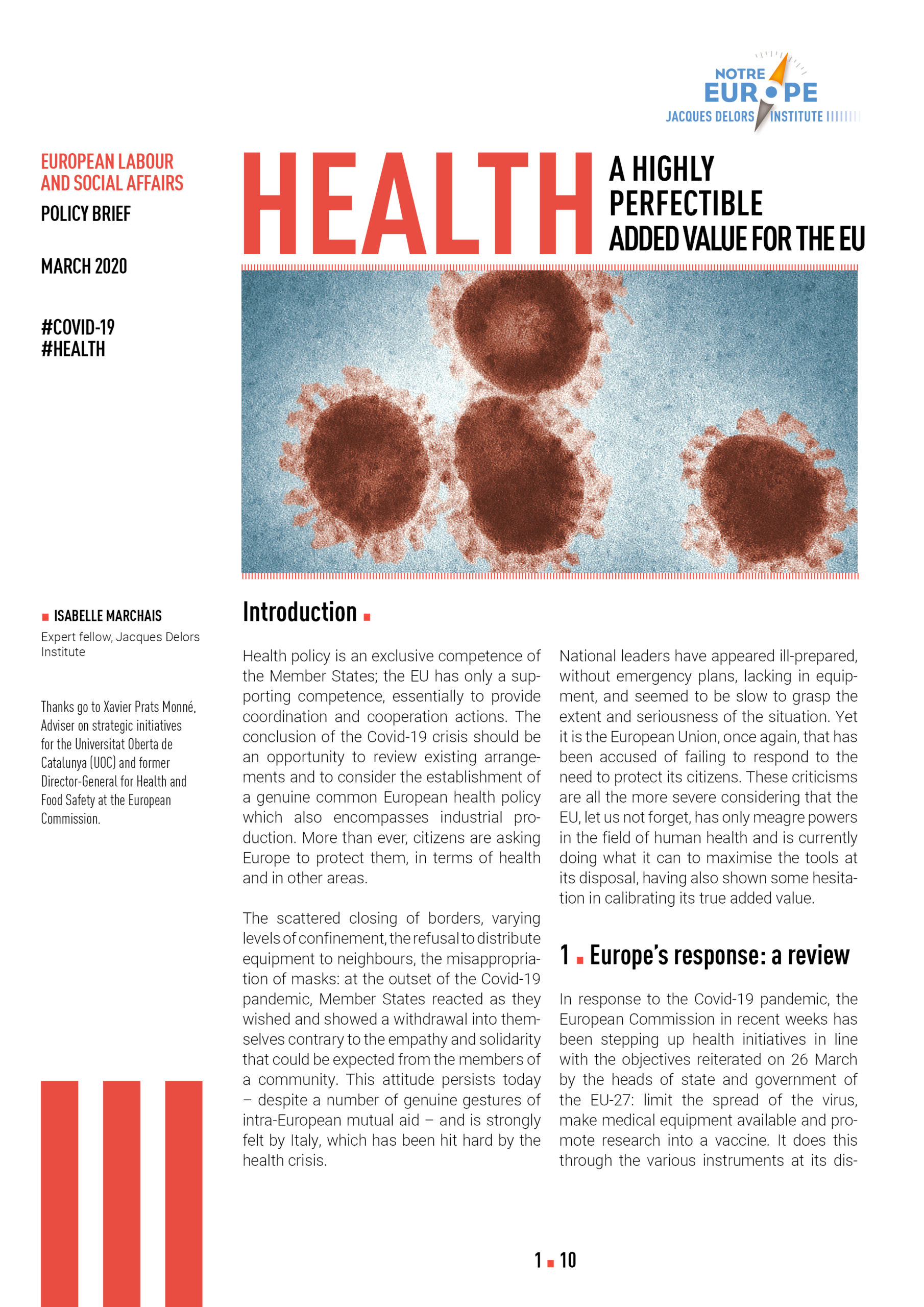Blog post 200331
Health: a highly perfectible added value for the EU
By Isabelle Marchais, expert fellow for the Jacques Delors Institute.
Translation from French by Emma Morton Saliou
Health policy is an exclusive competence of the Member States; the EU has only a supporting competence, essentially to provide coordination and cooperation actions. The conclusion of the Covid-19 crisis should be an opportunity to review existing arrangements and to consider the establishment of a genuine common European health policy which also encompasses industrial production. More than ever, citizens are asking Europe to protect them, in terms of health and in other areas.
The scattered closing of borders, varying levels of confinement, the refusal to distribute equipment to neighbours, the misappropriation of masks: at the outset of the Covid-19 pandemic, Member States reacted as they wished and showed a withdrawal into themselves contrary to the empathy and solidarity that could be expected from the members of a community. This attitude persists today – despite a number of genuine gestures of intra-European mutual aid – and is strongly felt by Italy, which has been hit hard by the health crisis.
National leaders have appeared ill-prepared, without emergency plans, lacking in equipment, and seemed to be slow to grasp the extent and seriousness of the situation. Yet it is the European Union, once again, that has been accused of failing to respond to the need to protect its citizens. These criticisms are all the more severe considering that the EU, let us not forget, has only meagre powers in the field of human health and is currently doing what it can to maximise the tools at its disposal, having also shown some hesitation in calibrating its true added value.
SUR LE MÊME THÈME
ON THE SAME THEME
PUBLICATIONS
Making health a European priority

Northern Europe:
champion of healthy ageing

Declining birth rate in Europe

MÉDIAS
MEDIAS
La bataille des subventions menace l’unité de l’Europe

L’Europe de la santé : des avancées en façade, des réserves dans les faits
















